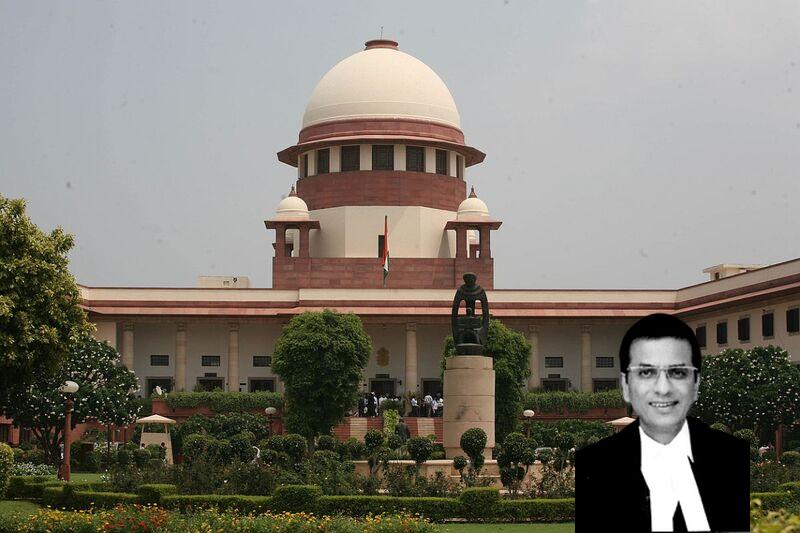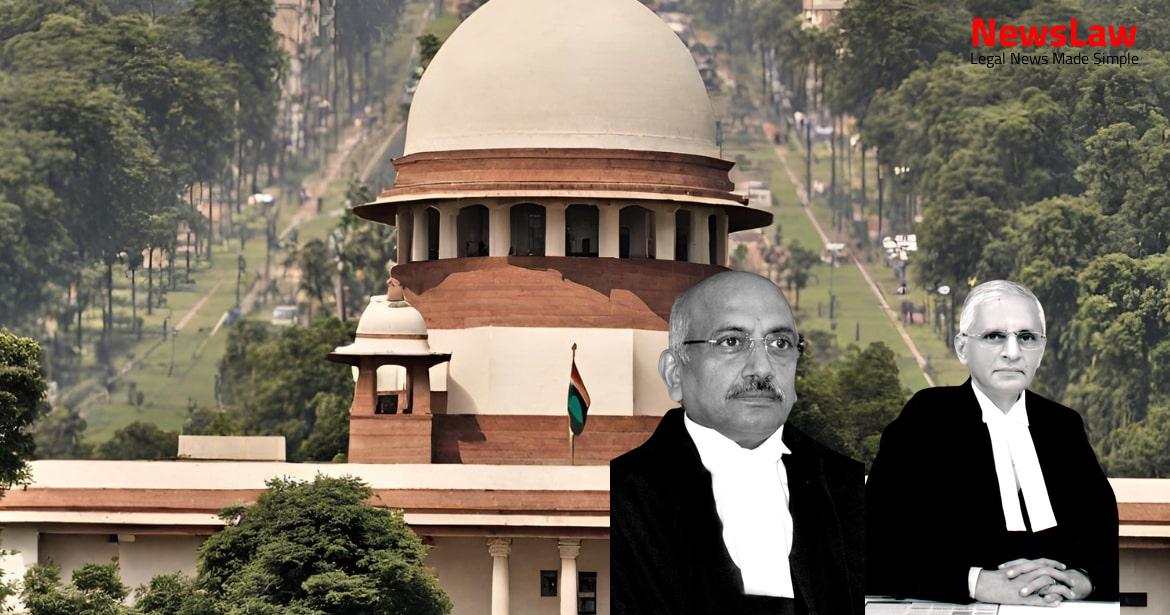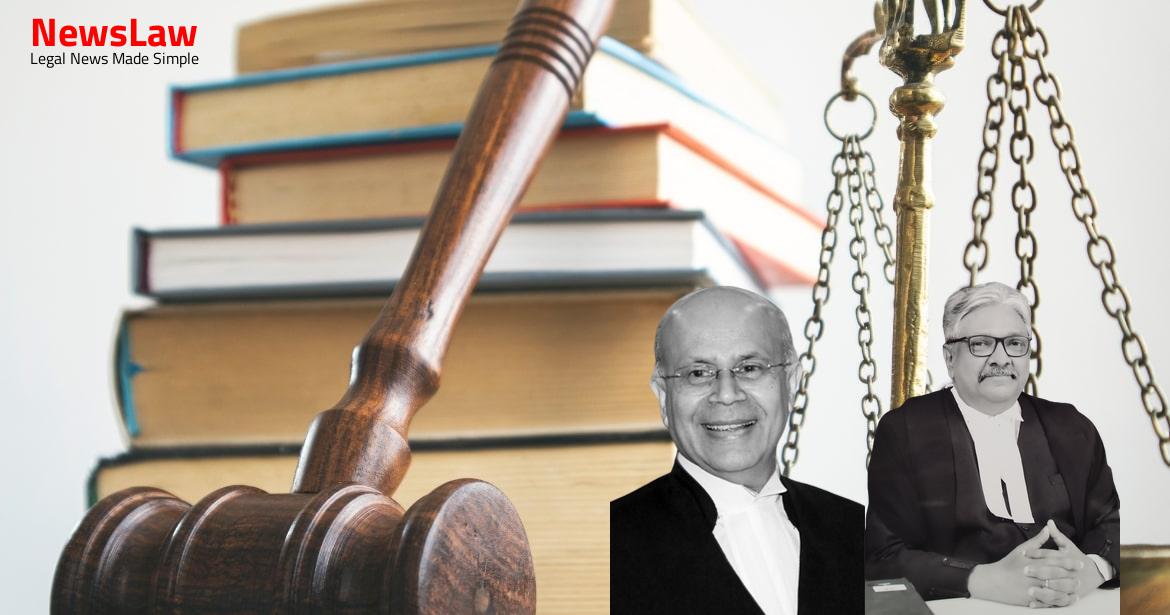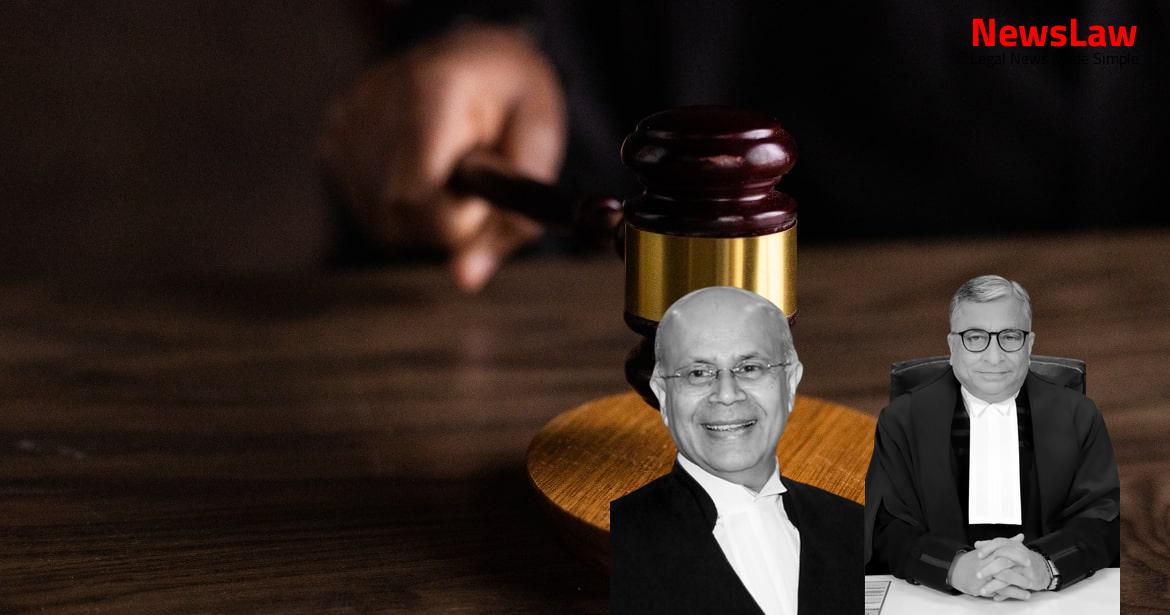1, 2, and 3, in the Appeal, filed the subject suit for partition, separate possession, and permanent injunction, concerning Property admeasuring about 471 square yards, together with the built-up area of a house described as D – 897, New Friends Colony, New Delhi-110025. To appreciate the inter se relationship between the parties and the claims/counterclaims for partition of the Suit Property, the genealogy of the parties is noted hereinunder: 3 5. 1 to 3 are the grandchildren of Sheila Kapila through Mrs. Sudha Panda, who is the first daughter of Sheila Kapila. Hence, the Plaintiffs in the array of parties included Defendant No 3 and also Defendant Nos. 5.1 The Plaintiffs aver that the Suit Property is inherited by the four children of Sheila Kapila and therefore, at the foremost, the Suit Property is partitioned into four equal shares, allotted one such share individually to the Plaintiffs and Defendant Nos. 4 5.2 The Plaintiffs claim a share in the Suit Property as co-sharers/joint owners on the principle of devolution. In this background, while the Plaintiffs deny the existence of the Will, they raise an alternative plea that the purported Will relied upon by Defendant No 4, even if construed as valid, would provide an absolute legacy in favour of the four children of Late Sheila Kapila. Therefore, the Plaintiffs contend that succession to the Suit Property as governed by a Will, firstly, is untenable and illegal, and, secondly, the Will confers absolute bequest in favour of her four children. Alternatively, it is averred that the Suit Property can be sold, and the sale proceeds be partitioned into four equal shares and are allotted to (i) Plaintiffs, (ii) Defendant No 1, and (iii) Defendant No 2 and the fourth share of Dr. Rajendra Kapila being deposited before this Hon’ble Court until adjudication thereof; and (B) Restraining the Defendants No 4 and 5 or their agents, assigns and representatives, from interfering with the peaceful possession of the Suit Property of the Plaintiffs till such time that the Suit Property is sold; and CPC.
Having seriously objected to the existence of the Will dated 18.11.1999 of Late Sheila Kapila, it is also stated that sufficient circumstances are presented to raise suspicion on the existence of the Will. Defendant No 1 supports the partition and mode of partition and, hence, prayed for passing a decree in terms of the prayer made in the plaint. Defendant No 4 asserts that the Suit Property could be divided in terms of the Will dated 18.11.1999. However, if the children of the deceased beneficiary intend to dispose of their share of the property, then they shall first offer it to the other beneficiaries or their children in case they are dead.” 10.1 In terms of the operative clause in the Will dated 18.11.1999, the four children of Sheila Kapila have a beneficial life interest in the Suit Property. The Plaintiffs have placed a copy of the Will on record and Defendant No 4 prays for division of the Suit Property in terms of the Will dated 18.11.1999. Defendant No 5, though filed a separate written statement, which is verbatim in line with the narrative of Defendant No 4. Rajendra Kapila, being very close with his mother, was never sounded on the execution of a Will by Sheila Kapila in favour of her children and grandchildren. Rajendra Kapila treated his twenty-five per cent share in the Suit Property as an owner and incorporated it in the terms of his divorce from his first wife, Dr.
17202/2021 [U/O-XXXIX, RULES 1 AND 2 OF THE CODE OF CIVIL PROCEDURE, 1908 (CPC)]: “Pursuant to the order passed by this Court on 14 March, 2022, the counsel for the defendants No 4 and 5 has taken instructions from his clients and submits that the defendants No 4 and 5 are not inclined to purchase the respective shares of the remaining parties in the Suit Property at the circle rate. 17202/2021, the defendants No 4 and 5 have taken objection to the sale of the Suit Property being ordered under the provisions of Order XXXIX Rules 1 and 2 of the Code of Civil Procedure, 1908 (Code of Civil Procedure, 1908 (CPC). The written statements are stated to have been filed on behalf of the defendants No 4, 5 and the defendant no. The counsel for the defendants No 1 and 2 states that written submission have also been filed on behalf of the defendants no. In view of the above, a preliminary decree is passed in the above terms, declaring that the parties shall each have undivided shares in the suit Property in the manner indicated below: S. D-897 New Friends Colony New Delhi 25% 25% 25% 25% Counsels for the parties agree that the suit Property cannot be divided by metes and bounds. In light of the above, I am of the view that the aforesaid Property should be put to sale and the proceeds thereof be distributed equally amongst the parties in terms of their shares as determined above. Without opportunity or trial of the issues, findings on the very existence of the Will are recorded by the Single Judge and read thus; “The reference to the alleged Will of late Mrs. Sheila Kapila was made by the mother of the defendants no.4 and 5 for the first time in her email dated 29th July, 2021 written to the plaintiffs, wherein she had claimed that “she has a valid Will duly signed by late Mrs. The subsequent e-mail dated 2 nd November 2021 sent by the defendants no.4 and 257 5 along with their mother to the plaintiffs also suggests that the original Will of late Mrs. The Single Judgment placed reliance on the e-mail dated 29.07.2021 exchanged between the parties. A categorical finding in paragraph 29 of the Judgment is recorded which reads thus: “In view of the aforesaid discussion, there is no doubt in my mind, whether on the principles of intestate succession or in terms of the Will dated 18th November, 1999 propounded by the defendants no.4 and 5 that the plaintiffs no.1 to 3 together, defendant no.1, defendant no.2, and the legal heirs of late Dr. 4 and 5 on the other side, are not admitting the very existence of the Will dated 18.11.1999 and are not on the same page. A close look at the Impugned Judgment discloses that the Division Bench proceeded on the premise that the Will dated 18.11.1999 is not disputed, and an interpretation of clauses in the Will dated 18.11.1999 arises for consideration. The operative portion of the Judgment reads thus: “The sole issue for consideration before us hinges upon the interpretation of one sanguine document – Will dated 18.11.1999, which, being admitted by all parties, is not under challenge.
Therefore, unless and until there is a clear admission on the existence of the Will, which is proved by interpreting clauses in the Will, a Judgment on admission is impermissible. 1 and 3 argued that the parties in the Suit for partition are fairly aged and that the Judgment on admission by the Learned Single Judge cannot be faulted with on any ground. Inviting our attention to the pleadings, it is argued that the differentiation between the admitted case and the disputed case comes within the scope of Order XV, Rule 2 of the CPC, and a decree to the extent where it is governed by admission has been made and the dispute is relegated to independent proceedings. 22.3 Admission in pleadings means a statement made by a party to the legal proceedings, whether oral, documentary, or contained in an electronic form, and the said statement suggests an inference with respect to a fact in issue between the parties or a relevant fact.
To constitute a valid admission in pleading, the said admission should be unequivocal, unconditional, and unambiguous, and the admission must be made with an intention to be bound by it. The existence of the power to pronounce a judgment on admission under Rule 6 of Order XII and Rules 1 and 2 of Order XV, is not an issue in the appeal but Order XII Rule 6 Judgment on admissions.—(1) Where admissions of fact have been made either in the pleading or otherwise; whether orally or in writing, the Court may at any stage of the suit, either on the application of any party or of its own motion and without waiting for the determination of any other question-between the parties, make such order or give such judgment as it may think fit, having regard to such admissions. One of several defendants not at issue.—2 [(1) Where there are more defendants than one, and any one of the defendants is not at issue with the plaintiff on any question of law or of fact, the Court may at once pronounce judgment for or against such defendant and the suit shall proceed only against the other defendants.] 3 [(2) Whenever a judgment is pronounced under this rule, decree shall be drawn up in accordance with such judgment and the decree shall bear the date on which the judgment was pronounced. We notice that the Learned Counsel, going by the pleadings, reply that their clients do not admit the existence and the execution of the Will dated 18.11.1999, which is said to have been executed by Sheila Kapila. 24.3 Further, this Court in Uttam Singh Duggal (supra), while adverting to Section 17, Indian Evidence Act, 1872, which provides for admissions through statements in oral, documentary and in electronic form, expanded the scope of admissions and recognised that “admissions are of many kinds: they may be considered as being on the record as actual if that is either in the pleadings or in answer to interrogatories or implied from the pleadings by non-traversal.
The judicial discretion shall always be in addition to the provisions covering the judgment on admission and guided by the best of wit and wisdom of the Court in pronouncing a judgment on admission. Tata Steel Ltd it is held that ‘Admissions’ should be categorical and intentional, as Order XII, Rule 6, CPC allows discretion rather than obligation. In short the discretion should be used only when there is a clear “admission” which can be acted upon. The Indian Succession Act, 1925 provides for legal requisites of a will, and proof of the execution is a sine quo non for giving effect to a will. The proof of execution and attestation of a Will are strictly by the scheme of the Indian Evidence Act, and the Indian Succession Act. A court treats a Will as a legally enforceable document only upon proof in accordance with law. Suffice it to note that the execution of the wills has to be proved in accordance with Section 68 of the Evidence Act.” 26.2 Upon complying with the requirements of Section 63 of the Indian Succession Act and proof in terms of Section 68 of the Indian Evidence Act, a Will is said to be in existence. The Plaintiffs in the Plaint, in 28 unequivocal terms, deny and dispute the Will dated 18.11.1999, and contest the inheritance through testamentary succession. 4 and 5, could not have bequeathed the interest in the Suit Property in favour of Defendant No. The extended limb of the objection, no doubt, is left open for consideration in separate legal proceedings. 4 and 5 are the propounders of the Will and the existence or execution of the Will dated 18.11.1999 is not admitted by the Plaintiffs and Defendant Nos.
Therefore, he prays for setting aside the Impugned Judgment and remitting the matter to the Trial Court for entering on issues, allowing the parties to join the trial and deciding the mode and manner of succession to the Suit Property among the contesting parties. 1, 2 and 3, argue that the Judgment on admission is available from the bare perusal of the reply of Defendant Nos. Therefore, according to them, there is no dispute on the seventy-five percent of the claim in the Suit Property, and the twenty-five percent remainder representing Dr. 11 to 14 advert to and state the Plaintiffs’ case on the existence of the Will. The respective averments are reproduced in the following tabular form: Plaint Written Statement Paragraph 11: Defendant No.4 in his communications has alleged that late.
The Defendant No l and Defendant No.2 also informed the Plaintiffs that too are not aware of any Will of their late mother Mrs. The Plaintiffs, Defendant No 1 and Defendant No 2 were always aware of the Will and the present suit is only an attempt to usurp the share of Defendant No 4 and 5 in the Suit Property. Without prejudice, even assuming without conceding that the purported Will relied upon by Defendant No.4 was a valid document (though it is not), the said purported Will contains an absolute bequest in favour of the four children i.e. Paragraph 25: With respect to the contents of paragraph 12 of the Plaint, It is denied that the Will contains an absolute bequest in favour of the four children i.e. Thus, any claim of Defendants No.4 and 5 is not only belated but also barred by delay and laches.
Defendant No 4 and 5 became entitled to 25% share in the Suit Property only upon the demise of Late Dr. Rajendra Kapila in the Suit Property, the Plaintiffs are constrained to institute the present Suit for Partition, by Sale of the Suit Property and division of the Sale Proceeds thereof among the Plaintiffs. As per the Plaintiffs, the following persons are entitled to a share in the Suit Property: – Plaintiffs No I to 3: 25% share (i.e., 8.33% share each) Defendant No l: 25% Defendant No.2: 25% Defendant No.3: 25% Paragraph 27: The contents of paragraph 14 of the Plaint are incorrect and denied. The party at issue admits the existence of the Will dated 18.11.1999, then in a suit for partition, the difference in standing of parties whether plaintiffs/defendant is not of much significance, a decree on admitted case is pronounced. Emails dated 2 October 2021 from Madhu Sehgal to Plaintiff No.1 and from Defendant No.4 to Plaintiff No.1 7 Receipt admitted contents denied 35 4. Email exchanged between Defendant No.4 to Plaintiff No.1 between 22 July 2021 9-11 Receipt admitted contents denied 6. 5 Email dated 22.07.2021 from Vikrant Kapila to Pankaja Panda Admitted 6. 7 Email dated 2.10.2021 from Madhu Sehgal to Pankaja Panda Admitted 36. We have in the preceding paragraph noted that the Learned Single Judge, after taking note of the objection to the pronouncement of Judgment on admission, and after doubting the existence of the Will dated 18.11.1999, still proceeded to decide the rights or succession of the parties to the Suit Property.
37.1 The probable issues that may arise for consideration are: a) Whether the suit property is divided among the parties on testamentary succession or intestate succession? For the reasons already discussed, the decree and Judgment dated 10.05.2023 and 11.10.2022 are interfered with and set aside except the direction in Paragraph No 45 of the Judgment dated 10.05.2022, and the matter is remitted to the Learned Single Judge for trial and disposal of O.S. Therefore, we hold and authorise the sale of the Suit Property without a Preliminary Decree in terms of Section 2 of the Partition Act, 1893. It is agreed that defendants no.1, 2 and 3 will execute a power of attorney in favour of plaintiff no.1 to sign all the requisite documents, forms, 40 applications, and the like for the conversion of the suit property from leasehold to freehold. After conversion of the suit property from leasehold to freehold, the Local Commissioner will conduct a private sale of the suit property and the parties hereto shall be given the opportunity to participate.
Thereafter, the parties are directed and also given liberty to serve a work memo on the Local Commissioner, on the mode, manner (including paper publication, advertisement, minimum price, etc.) and method of conducting a private sale of the Suit Property. The fees paid to the Local Commissioner as well as any other statutory fees/charges paid towards conversion of the suit property from leasehold to freehold shall be recovered by the plaintiffs and the defendants no.1 and 2 from the sale proceeds of the suit property as a first charge. For the above reasons, we are of the view that the impugned Judgments rendered on admission are liable to be set aside, accordingly set aside in the manner indicated above and the matter be remitted to the Learned Single Judge for framing issues and affording an opportunity of trial to the parties, to prove their respective cases and pronounce the Judgment. There is no order as to costs.



